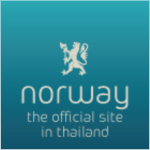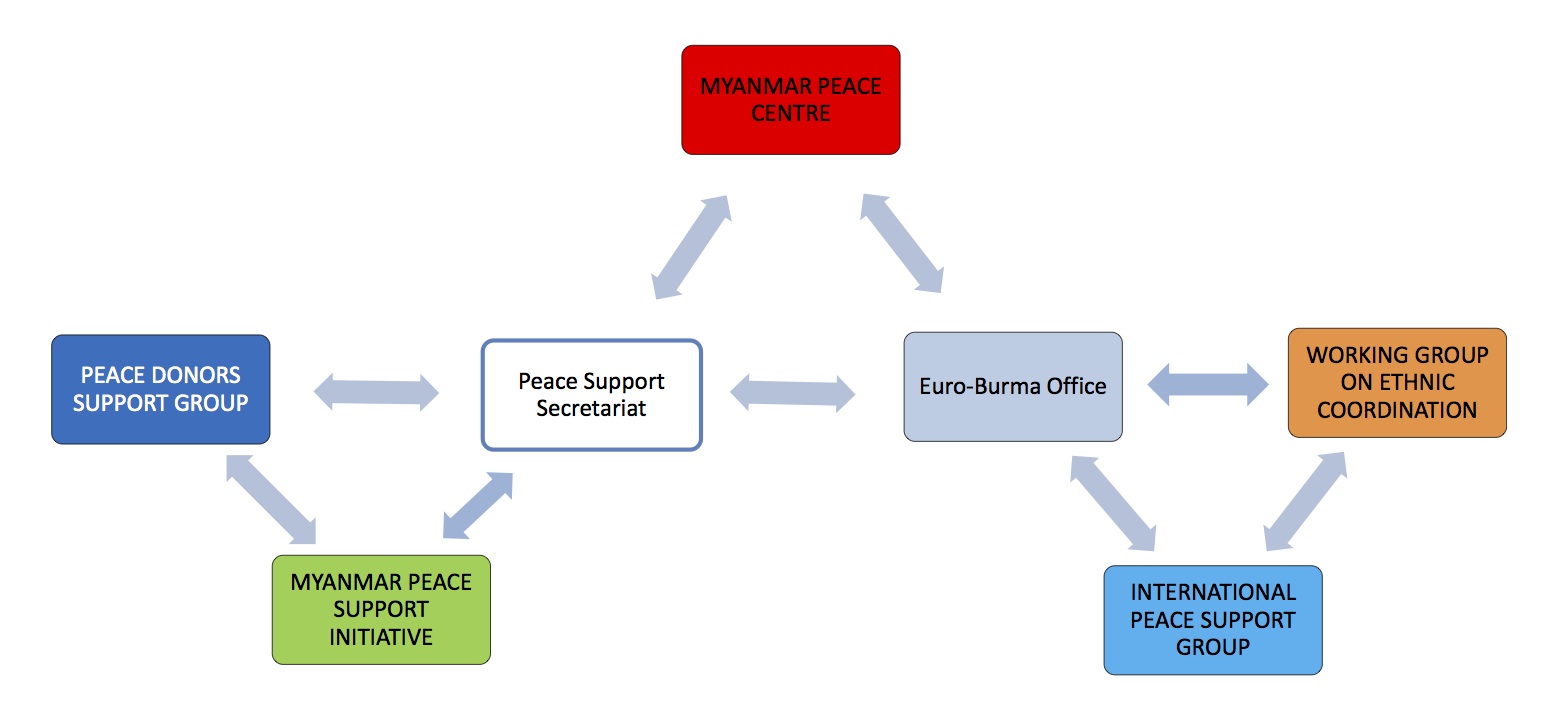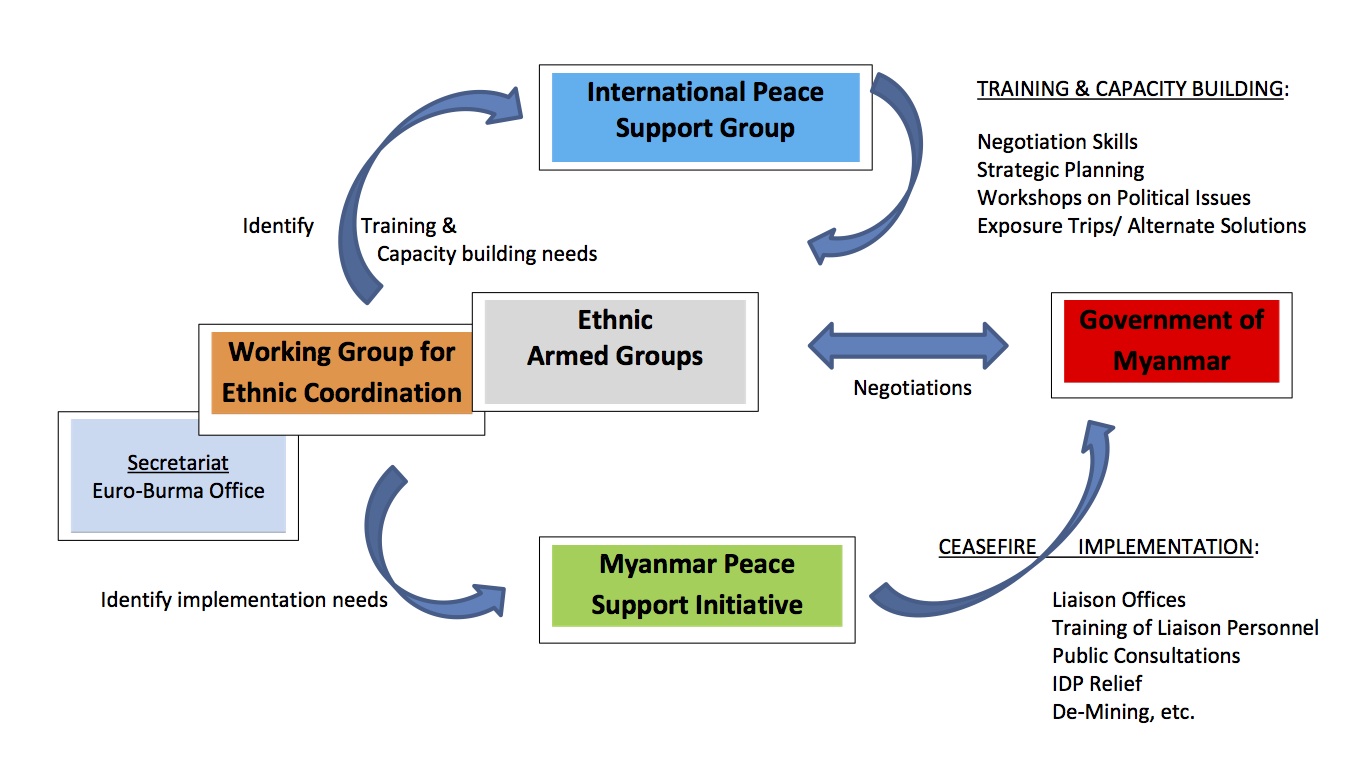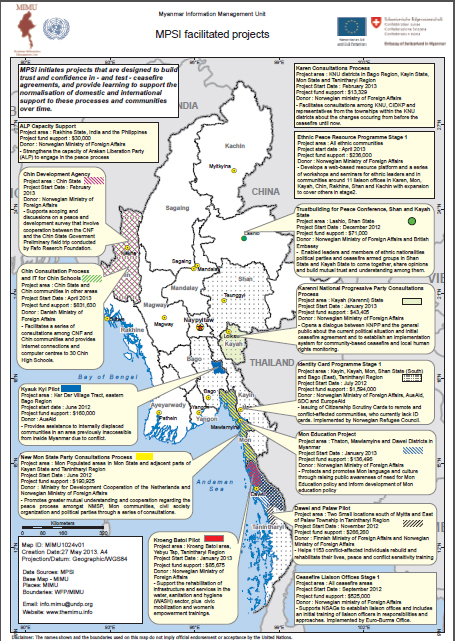| Led by: Norway
Agreed in: January 2012, during a state visit by Norwegian Foreign Minister Jonas Gahr Store to Myanmar
|
|
BackgroundThe Myanmar Peace Support Initiative is a Norwegian-led international initiative to support the ceasefires in Myanmar through humanitarian and development assistance. In parallel with the continued political efforts, it provides communities in the ceasefire areas with the needed assistance in order to recover from conflict and build momentum for peace on the ground. Norway is not involved in the ceasefire-negotiations or peace-negotiations. The initiative does not replace the process towards a broad political settlement with all the ethnic groups. It is instead positioned as a relatively short-term effort to support the on-going ceasefire negotiation process and the provision of peace dividends will in turn help in building confidence and establishing a conducive environment for the separate political processes. In March 2014, the Myanmar Peace Support Initiative concluded a Lessons Learned report on its two years of work supporting the peace process in Myanmar. The report brings together research conducted in the last year, including an MPSI ‘Reflections’ report produced in early 2013 (see below), an independent review of MPSI undertaken in 2014, and is informed by field trips, discussions with peace process stakeholders, the insights of MPSI staff, meetings and workshops with Government and Ethnic Armed Groups, community meetings and project reporting. The report seeks to reflect on those two years of support, and suggest ways to frame and improve international support to the peace process and aid into conflict-affected areas. click here. Role of NorwayThe Myanmar Government has asked the Norwegian Government to help facilitate and coordinate the delivery of assistance to the conflict-affected communities in the ceasefire areas, where there has been minimal or no prior access provided for aid-delivery. The Norwegian Government has also been asked to initiate a consultation process with a range of stakeholders, including potential donors, the government, non-state armed and political groups, civil society actors and communities in order to gather funds for the delivery of aid in these areas. Main objectives:
Coordination Mechanism (as of 3 July 2012)
The MPSI works to assist both the government and ethnic militia groups in the peace process. It supports the government’s peace plan through assistance for ceasefire implementation; and supports ethnic armed groups through training and capacity building. The Euro-Burma office is the MPSI’s key liaison with ethnic armed groups that make up the Working Group for Ethnic Coordination (WGEC). Meanwhile, the International Peace Support Group (IPSG) formed of international NGOs involved in capacity building initiatives supports the ethnic armed groups negotiate a just and equitable peace. Projects (as of June 20th, 2012) |
PersonnelMPSI Team MPSI & PDSG Coordinating office: Peace Support Secretariat run by Norwegian staff, Matt Maguire in Yangon until June. FundingPeace Donor Support Group (PDSG) Myanmar Peace CentreSecretariat for the Myanmar Peace committee and reports to the Office of the President. Ethnic-related PartnersEuro-Burma Office Working Group on Ethnic Coordination Partner Armed Militia GroupsSubstantive interaction include: the KNU (Kayin/Karen), NMSP (Mon), CNF (Chin) and RCSS/SSA-South (Shan). Preliminary discussions: Information exchange: Co-ordinating structures Pilot Implementation Coordination Body |
MPSI Facilitated Projects
MPSI initiates projects that are designed to build trust and confidence in – and test – the ceasefire agreements and provide learning to support the normalisation of domestic and international support to these processes and communities over time. Through these projects MPSI has interacted with conflict-affected communities, non-state armed groups, the Myanmar Government, and the Myanmar Army. To ensure that the projects are locally owned and that they have community participation the projects are defined by and requested by local actors, not prescribed by MPSI.
Within a one-year timeframe MPSI has initiated and/or supported a range of projects which vary depending on the local context and specific concerns of parties to the ceasefire agreement and affected communities. The projects aim to implement and test specific clauses within the ceasefire agreements e.g. providing basic services to the conflict-affected communities; opening liaison offices; securing freedom of movement and operations of NGOs, particularly local NGOs; and supporting public consultations on the peace process.
The projects focus on:
- Providing assistance to conflict-affected communities, often alongside the creation of opportunities for dialogue between local Myanmar army commanders, non-state armed group commanders and the conflict-affected communities
- Supporting non-state armed group leaders to conduct formal consultations with each other and their community members aimed to promote greater mutual understanding and cooperation regarding the peace process proceedings
- Supporting pro-ethnic rights policy making
- Providing national identity cards to conflict-affected persons
- Joint development planning between a non-state armed group and local authorities
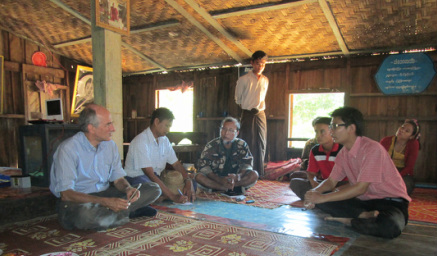 Kyauk Kyi Pilot
Kyauk Kyi Pilot
Project area: Ker Der Village Tract, eastern Bago Region
Project start date: June 2012
Project fund support: $160,000
Donor: AusAid
This first MPSI project was identified soon after the initial preliminary ceasefire agreement in January 2012 between the Karen National Union (KNU) and the Myanmar Government. The objective of this project is to provide assistance to internally displaced communities in an area previously inaccessible from inside Myanmar due to conflict. The project aims to test and increase trust in the peace process through facilitation of humanitarian assistance to IDPs which also provides need and opportunity for interactions between the local Myanmar army commanders, KNU commanders and IDPs of the area. To learn more about the project’s activities and results, click here.
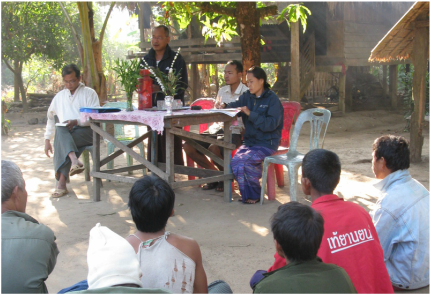 Kroeng Batoi Pilot
Kroeng Batoi Pilot
Project area: Kroeng Batoi area, Yebyu Township, Tanintharyi Region
Project start date: January 2013
Project fund support: $85,675
Donor: Norwegian Ministry of Foreign Affairs
Following the renewed ceasefire between the government and the New Mon State Party in February 2012, this project aims to create confidence in the peace process through support to the rehabilitation of infrastructure and services in the water, sanitation and hygiene (WASH) sector and through civic mobilization and women’s empowerment trainings. To learn more about the project’s activities and results, click here.
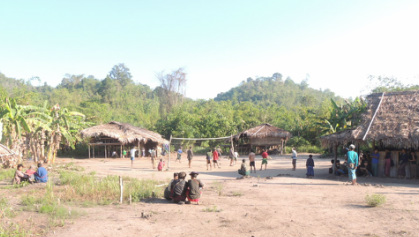 Dawei and Palaw Pilot
Dawei and Palaw Pilot
Project areas: Two small locations south of Myitta and east of Palaw in Tanintharyi Region
Project start: November 2012
Project fund support: $266,260
Donor: Finnish Ministry of Foreign Affairs & Norwegian Ministry of Foreign Affairs
In the context of the ceasefire between the Myanmar Government and Karen National Union (KNU), this pilot project is helping 1153 conflict-affected individuals rebuild and rehabilitate their lives. This project broke new ground in the arrangements made for implementation by a consortium of community organisations from inside the country working together with the border-based CIDKP, the KNU’s relief agency. To learn more about the project’s activities and results, click here.
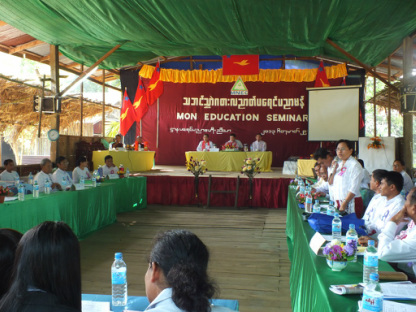 Mon Education Project
Mon Education Project
Project areas: Thaton, Mawlamyaine and Dawei Districts in Myanmar
Project start date: January 2013
Project fund support: $136,496
Donor: Norwegian Ministry of Foreign Affairs
The Mon Education Development Project is designed to protect and promote Mon language and culture: a very important element of the agendas of the Mon and other ethnic groups in their peace negotiations with the Government. The project involves public community consultation workshops in 8 areas, to raise public awareness of need for Mon Education policy and inform development of Mon education policy. The project supports curriculum development and includes a multi-stakeholder education seminar for policy development. To learn more about the project’s activities and results, click here.
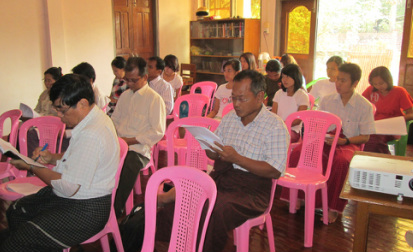 New Mon State Party Consultations Process
New Mon State Party Consultations Process
Project areas: Mon populated areas in Mon State and adjacent parts of Karen State and Tanintharyi Region
Project start date: June 2012
Project fund support: $190,925
Donor: Ministry for Development Cooperation of the Netherlands & Norwegian Ministry of Foreign Affairs
The New Mon State Party (NMSP) is organising a series of coordinated consultations related to the peace process with Mon communities, Mon civil society organisations, various NMSP departments and other Mon political parties. Overall, the project aims to promote greater mutual understanding and cooperation regarding the peace process amongst these actors.To learn more about the project’s activities and results, click here.
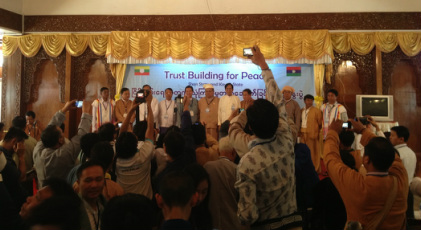 Trustbuilding for Peace Conference – Kayah and Shan States
Trustbuilding for Peace Conference – Kayah and Shan States
Project area: Lashio city, Shan State
Project start date: December 2012
Project fund support: $ 71,000
Donor: Norwegian Ministry of Foreign Affairs and British Embassy
This project enabled leaders and members of ethnic nationalities political parties and ceasefire armed groups in Shan State and Kayah State to come together, share opinions and build mutual trust and understanding among them. The project includes a process of community follow-up after the conference. To learn more about the project’s planned activities and expected results, click here.
|
Karen Consultations Process Project area: KNU districts in Bago Region, Kayin State, Mon State and Taninthayi Region The project’s overall objective is for the Karen National Union (KNU) and Committee for Internally Displaced Persons (CIDKP) – the humanitarian arm of KNU – to consult representatives from the townships within the seven KNU districts about the changes occurring from before the ceasefire until now. Workshops are being conducted to identify communities’ broad needs and concerns and how to address them and to gather communities’ views on the peace process to be taken into account by the KNU in the peace process agenda. To learn more about the project’s activities and results, click here. |
Karenni National Progressive Party Consultations Process Project area: Kayah (Karenni) State This project aims to open a dialogue between KNPP and the general public about the current political situation and initial cease-fire agreement reached between the KNPP and government and to mobilize formation of public local ceasefire monitoring bodies and local human rights committees. To learn more about the project’s activities and results, click here. |
|
|
Chin Consultations & IT for Chin Schools Project area: Chin State and Chin communities in other areas. The project’s overall objective is for Chin communities to move towards sustainable peace through implementation of two specific ceasefire clauses. The project has a two-fold approach 1) Chin National Front will conduct a series of public consultations and 2) Internet connections and computer centres will be provided in collaboration with the Chin State Government to 30 Chin High Schools in order to overcome isolation in Chin State. To learn more about the project’s planned activities and expected results, click here. |
Ceasefire Liaison Offices Stage 1 Project areas: All ceasefire areas As part of the cease-fire agreements, the Government and the NSAGs agreed to opening liaison offices. With funding from Norway, Euro Burma Office (EBO) has supported NSAGs to establish liaison offices and carried out an initial training in responsibilities and approaches. The aim of the project is to strengthen the capacity of liaison offices to provide support at ground level to the peace process. To learn more about the project’s planned activities and expected results, click here. |
|
|
ALP Capacity Support Project areas: Rakhine, India and the Philippines Two projects have been supported to strengthen the capacity of Arakan Liberation Party (ALP) to engage in the peace process. One project provided funding for ALP internal discussions and strategy meetings which took place in India. A second project supported an exposure trip for the ALP to observe peace processes in the Philippines. This project was supported by the Centre for Peace and Conflict Studies and funded by Norway. To learn more about the project’s activities, click here. |
Identity Card Programme Project areas: Kayin, Kayah, Mon and southern Shan States, and Tanintharyi and eastern Bago Regions This project is an accelerated procedure to issue Citizenship Scrutiny Cards. The NRC, as a partner of MPSI, has developed a model of setting up a temporary “one-stop shop” which covers, free of charge, all the steps involved in issuing the Citizen Scrutiny Cards on the same day. To date, approximately 60,000 people have received national identity cards in Kayah and Kayin States. To learn more about the project’s planned activities and expected results, click here. |
Ethnic Peace Resource Programme Stage 1
Project areas: All ethnic communities
Project start date: April 2013
Project fund support: $ 236,000
Donor: Norwegian Ministry of Foreign Affairs.
This project contributes to the development of capacity and confidence of ethnic leaders to achieve practical solutions to long-standing problems of ethnic communities. The project develops a web-based resource platform and a series of workshops and seminars for ethnic leaders and in communities around liaison offices. There is also a gender dimension to the project, which aims to explore how to achieve greater representation of women in the peace process and ensure greater acknowledgement of issues of importance to women. To learn more about the project’s planned activities and expected results, click here.
Controversies:
The initiative has proved controversial with Thailand-based organisations, particularly given the Norwegian government’s decision to cut funding to border-based NGOs in early 2012. In an attempt to allay some of these concerns, Mr Larsen visited Chiang Mai on May 30 to discuss the initiative with the organisations.
Issues raised:
- Lack of transparency of a process they say has systematically excluded them.
- Suspicions over Norway’s economic motives and its “neo-liberal agenda”
- Fear it could coerce rebels into joining the government under the 2008 constitution.
- Doubts over the speed of the project
- Concerns that it risks derailing, rather than consolidating the fragile peace processes in Myanmar’s ethnic regions. The reason being that the initiative prioritises economic development ahead of political dialogue. It conceptualises aid as a strategic tool to simultaneously “test and build confidence” in the nascent peace processes, though ostensibly without supplanting political resolution.
Karen Community Based Organisations issued a statement that claims the fund lacks transparency and community support. It called on the MPSI to:
- Stop their current activities for long enough to review their process and procedures for implementation.
- Immediately release the fund design documents including the local languages translations. These documents should include sector targets, criteria and plans.
- Issue clear rationales for how each of the projects supported by the funds will contribute to conflict resolution.
- Develop and release project risk analysis and mitigation, and ensure that accessible monitoring and accountability mechanisms are in place.
- Develop and execute a robust consultation strategy both with local community members and with community-based organizations.
30 Aug 2012: Five organizations concerned with the Karen peace process in Burma say they will not attend a meeting organized by Norway’s MPSI because of its “flawed, untransparent peace-fund consultation” process.The group sent an open letter to Norwegian Ambassador Katja Nordgaard outlining its concerns.
- Karen Women Organization
- Karen Environmental Social Action Network
- Burma Partnership
- Human Rights Education Institute of Burma
- Women’s League of Burma

